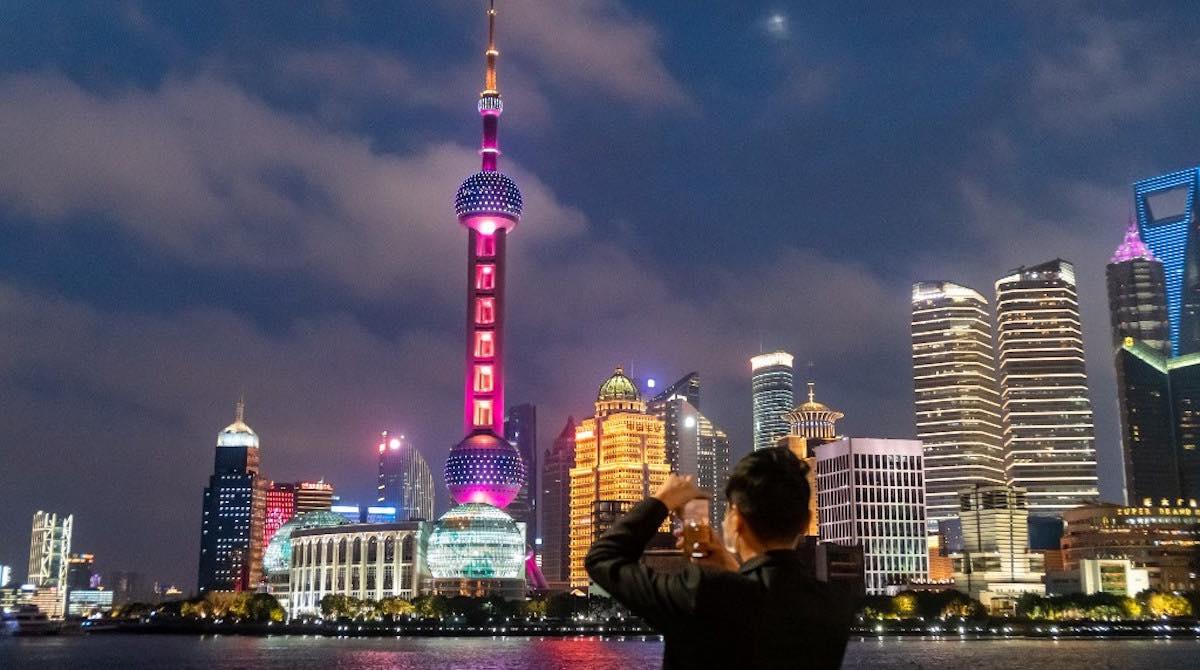Buried beneath the economic rubble in China, life is starting to stir again.
For more than two months, the country has been in de facto lockdown. Factories, businesses and schools were closed in the battle to stop the spread of the deadly Covid-19 epidemic. So far, the death toll has hit more than 3,000 with nearly 90,000 people infected in the country.
Still, slowly, Chinese citizens are getting back to work, according to a flash survey by Alibaba-owned Gaode, which is also known as AutoNavi. Earlier this week, the mapping, navigation and location-based services app revealed a snapshot of life in the world’s second-largest economy.
Statistics on Gaode’s “work resumption index” showed that “coastal export powerhouse provinces” in the southeast were taking tentative steps to return to normal, Trivium China, the research and policy advisory company, reported.
The leading city was Dongguan in Guangdong province with a “work resumption” figure of around 49.5% while Wuhan, the epicenter of the coronavirus outbreak, was at the bottom of the table on 12.5%.
Below are the rest of the employment numbers:
Ningbo (Zhejiang province) 48.82%; Wuxi (Jiangsu province) 48.40%; Qingdao (Shandong province) 46.80%; Foshan (Guangdong province) 46.20%; Shenyang (Liaoning province) 45.99%; Chengdu (Sichuan province) 45.69%; Shanghai 45.47%; Hangzhou (Zhejiang province) 44.90%; Chongqing 42.83%; Guangzhou (Guangdong province) 40.42%; Tianjin 37.39%; Beijing 37.14%.
“At this point, most of the companies we talk to are looking to hit at least 80% capacity in March, with full normalization at some point in April,” Trivium China stated. “To hit those targets, lots of workers will have to get back to the grind in a hurry.”
Even now, the economy is on life-support with up to 230 million migrant workers struggling to return to their jobs. Amazingly, that is just slightly less than the entire workforce of the 27-nation European Union.
Also, a survey released last week by the China Enterprise Confederation involving 500 of the leading manufacturers barely registered a heartbeat. More than 75% were private companies with the rest state-owned enterprises or SOEs.
Key findings showed that more than 95% of those polled reported a drop in revenue and profits, while 50% said they would struggle to survive the losses they were incurring.
Yet there are signs of green shoots when it comes to business activity. On Wednesday, Morgan Stanley, the multinational investment bank based in New York, released a media brief, stating that “72% of people who left tier 1 and tier 2 cities during the two weeks before Lunar New Year have already returned” to work.
“Intra-city activity has also improved steadily, with traffic congestion and subway passenger traffic in large cities reaching 81% (compared to 84% on Monday and 80% last Friday) and 37% (compared to 36% on Monday and 32% last Friday) of their respective comparable weekday levels last year,” Morgan Stanley said.
Economically, business activity had flatlined in China with manufacturing and the service sector plunging to record PMI lows. Exports and imports also tanked in January.
On Wednesday, the National Bureau of Statistics confirmed that consumer inflation last month increased 5.2% compared to the same period in 2019, but down from 5.4% in January.
Food prices triggered the rise, jumping 22% with pork increasing 135%. The massive surge was down to African swine fever which has ravaged the nation’s hog herds after millions of pigs were culled in 2019.
“The sudden new coronavirus epidemic caused a more complex impact on price movements in February,” Zhao Maohong, of the National Bureau of Statistics, said.
Just 48 hours earlier, the China Passenger Car Association announced that auto sales had stalled last month. They dropped by 78% compared to the same period a year ago.
“Due to the sudden outbreak of the new coronavirus epidemic, since the start of the Spring Festival [or Lunar New Year] break, dealers across the country basically closed their stores and stopped sales and service operations,” the China Passenger Car Association said in a statement.
“Because of that, most dealerships’ retail sales in the first three weeks of February were basically zero,” it added.
Steering people back into the fast lane at work has now become a priority.
READ MORE: Xinhualian sells shares after bonds default
READ MORE: PBOC warns banks their interest rates are too high
























